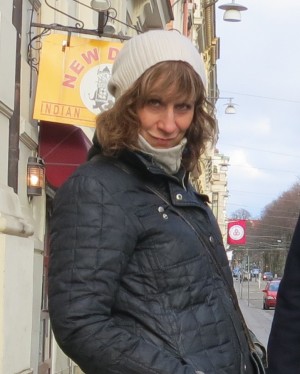Lots of you will remember the documentary film “Supersize Me” directed by Morgan Spurlock.? After seeing that film all those years ago, I became an admirer of Spurlock’s work and a frequent reader of his defunct blog. Some years after Supersize Me, he started production on the show “30 Days” which aired on the FX cable network in the US. Though I wasn’t around to watch it on TV at that time, I remember reading Morgan’s recounting of how production was going and of course, through the magic of the internet, I was able to get my hands on the entire first season.
The show itself is about spending 30 days in someone else’s shoes.? Someone else- usually meaning someone who lives differently or opposite what one person might see as normal or correct.? Or just different somehow.? The higher message in this show seems to have always been to make you see things differently, and understand some of the often misunderstood lifestyles and life circumstances.
Now in its third season, the most recent episode dealt with an avid hunter and meat eater, living 30 days with a Vegan family working as an animal rights activist.
Initially it may seem like this isn’t going to be worth anything or even interesting.? The gentleman is very polite and very candid about his opinions about animals and activists, and seems like the month will be nothing but disagreements and unspoken hatred.? As an audience member it probably all seems a bit forced, cause of course – it is for television.
But the animal rights episode has some very interesting moments, no matter how made for TV it may have been.? Example, riding along with an animal rescuer, who patrols factory farms for sick and abused animals, taking them to a rescue farm where animals are rehabilitated and allowed to live without abuse.? The video footage captured just from outside the fences of factory farms in California was nothing short of shocking, even if you think you have seen animals in some gross situations.? It was also interesting to hear the debates between the family and the gentleman, about diet, about the place of animals on earth and in our lives.? It wasn’t that he was proven wrong or that he was totally converted, what got me was how this man was able to have discussions and both make points and aknowledge points he had not fully considered previously.
I highly recommend 30 days. Not every episode or situation is golden, but when it is good.. it is great.? The kind of programming we should show our high school and grammer school students, to stimulate a more developed understanding and questioning of what is presented to us as reality.
If you use bittorent at all, here’s a link to the Torrent for the latest episode of 30 days.
 You can’t windsurf, because that would be elitist. But, if you’re the American president, you can drive around your ranch in a golf cart shooting guns, because people can relate to that. As comedian and writer Lizz Winstead explains it, sometimes there is no debate possible if we don’t agree on fundamental and proven facts. Over the past few months Lizz has been promoting her book “Lizz Free or Die” and travelling around the United States to see what people are doing and what they think about politics or life in general. Having written for several memorable television programs which includes having co-created The Daily Show with Jon Stewart, Lizz can tell you thing or two about what is good and what is bad about politics and media in the United States.
You can’t windsurf, because that would be elitist. But, if you’re the American president, you can drive around your ranch in a golf cart shooting guns, because people can relate to that. As comedian and writer Lizz Winstead explains it, sometimes there is no debate possible if we don’t agree on fundamental and proven facts. Over the past few months Lizz has been promoting her book “Lizz Free or Die” and travelling around the United States to see what people are doing and what they think about politics or life in general. Having written for several memorable television programs which includes having co-created The Daily Show with Jon Stewart, Lizz can tell you thing or two about what is good and what is bad about politics and media in the United States.